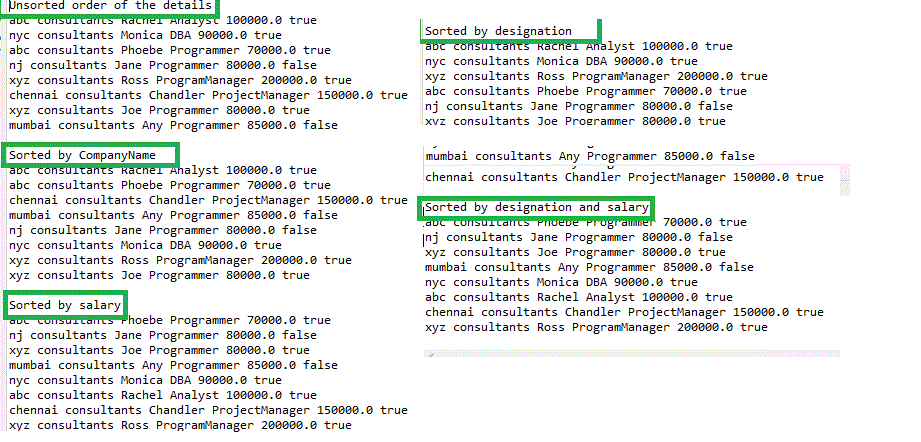
|
|
In Java, the Comparable and Comparator interfaces are used to sort collections of objects based on certain criteria. The Comparable interface is used to define the natural ordering of an object, whereas the Comparator interface is used to define custom ordering criteria for an object. Here are some reasons why you might want to use the Comparator interface over the Comparable interface in Java:
In summary, the Comparator interface is more flexible and provides more control over the sorting behavior of objects. If you need to sort objects based on different criteria or if the objects do not implement the Comparable interface, you should use the Comparator interface. On the other hand, if you want to define the natural ordering of an object, you should use the Comparable interface. Prerequisite: Comparable vs Comparator in Java Throughout the entire lifecycle of the project, we will be creating multiple classes in Java according to our requirements, and sorting is much required in many situations, especially during the report generation, we need to display the data according to the sorted order either in ascending/descending order. Even report generation requires not only single-field sorted order but also multiple fields and also multi-variant sort mechanism is also needed. In that case, we need to depend on Java Comparator Interface which is available in java.util package. Let us take a sample maven java project containing JUnit dependency to look at this feature and justify whether the sorting happens according to our needs or not by using JUnit. Example Maven ProjectProject Structure: 
This is the maven project containing JUNIT dependencies in pom.xml XML
Let’s start with the bean class that contains comparisons i.e. sort by in separate classes and each class implements a comparator as well specific to
Recruitment.java Java
As we are implementing java.util.comparator, not only the natural order of sorting, based on our requirements, we can sort based on different fields. Hence 4 different classes are introduced to produce the result. Not only on a single field but on more than 1 field also sorting is possible. These are the advantages of using a comparator. If needed, we can put some test data and check for the same in the console 
Now let us see the testcases to justify the same. TestComparatorServicesJava.java Java
Let us see the output and from here we can understand that comparisons can be done on any field and even on more than one field. 
|
Reffered: https://www.geeksforgeeks.org
| Software Testing |
| Related |
|---|
| |
| |
| |
| |
| |
Type: | Geek |
Category: | Coding |
Sub Category: | Tutorial |
Uploaded by: | Admin |
Views: | 12 |